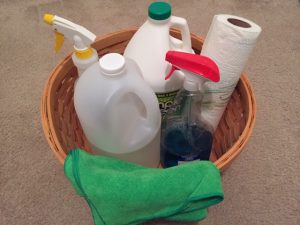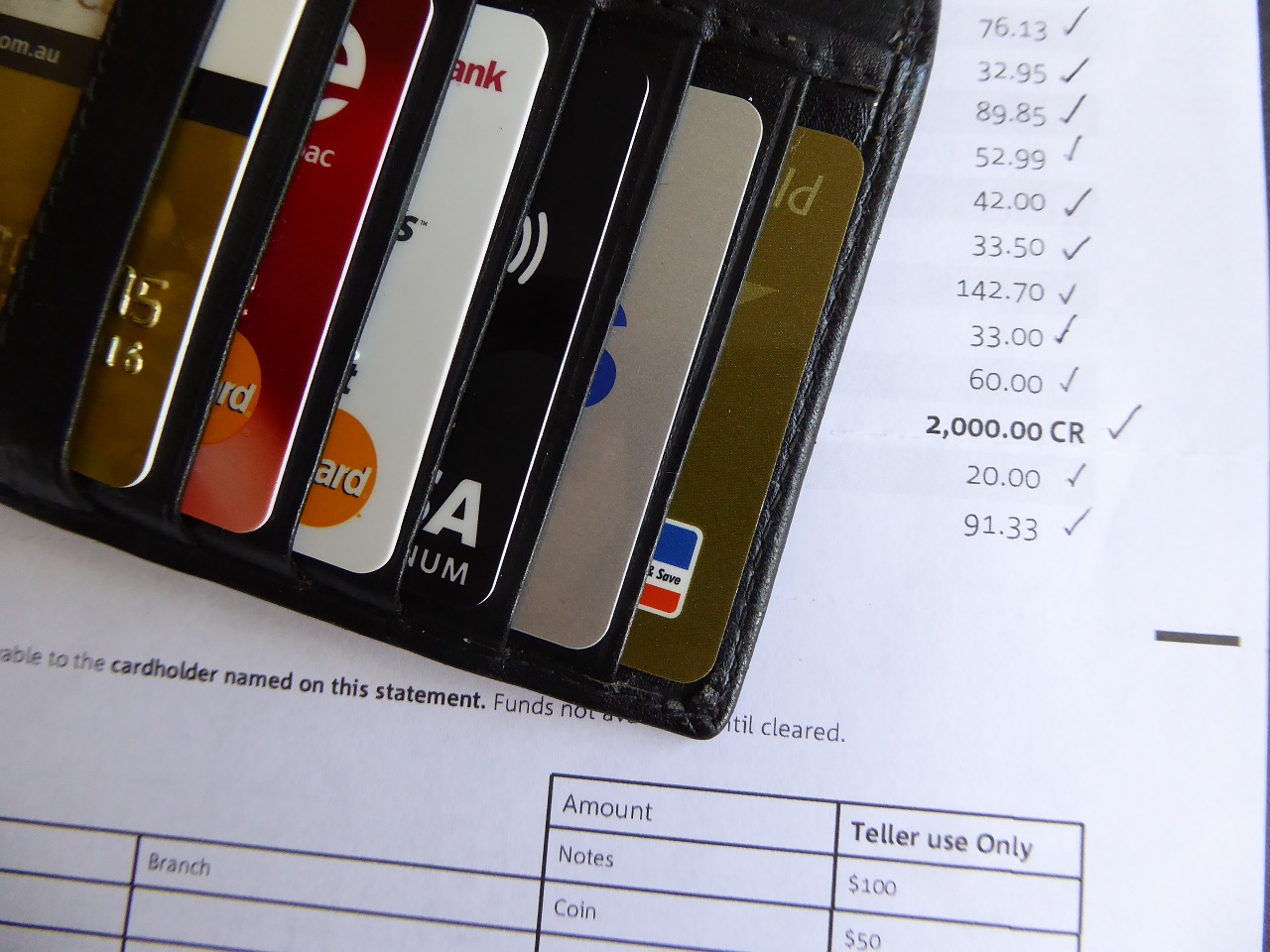
by Kendra Hughson | Mar 15, 2019
I love spring cleaning. Well, I love spring. I wish someone else would do the cleaning. It does feel nice to have everything clean and sparkling for those sunny spring days. According to a 2018 survey by the American Cleaning Institute, nearly 76% of households engage in spring cleaning each year. These spring cleaners report deep cleaning and clearing clutter as the top two reasons for this annual springtime spruce up.
If you want to join the springtime cleaning craze but aren’t sure how to start, here are a few ideas:
Clear the Clutter

Get ready for the springtime spruce up. Photo credit: Kendra Zamojski
Personal belongings hold a host of memories and other emotional attachments. This means stuff can accumulate in closets, drawers, cabinets, and other places. In my own life, I try to get rid of items I haven’t used in the last year. Others may use different criteria. Pick a closet, cabinet, or other area to de-clutter and start by sorting. Separate items into boxes or baskets labeled: Keep, Donate/Sell, Recycle, Trash. This is also a great way to help children make decisions about their stuff. It always makes me feel better to clear the clutter and organize a messy cabinet or closet.
Deep Cleaning
Deep cleaning involves going through each room and cleaning it to a higher standard or reaching dirt that might get missed in a regular cleaning routine. On deep cleaning days, wash window and shower curtains, wash windows and mirrors, scrub floors, wash or wipe down walls, baseboards, and doors. Dust or wipe down light fixtures, ceiling fans, furniture, and shelves. Other tasks might include vacuuming under furniture, cleaning the carpets and rugs, and cleaning under and behind appliances.
Spring cleaning takes a little extra elbow grease compared to the regular cleaning routine. If you find this overwhelming, start small by choosing a room or even smaller by choosing a closet or cabinet. Once you see the difference, it will motivate you to tackle the next job.
References:
Healthy Homes: Dealing with Household Clutter. 2015.
Available at: https://secure.caes.uga.edu/extension/publications/files/pdf/C%201067_1.PDF
Spring Cleaning Tips
Available at: https://lancaster.unl.edu/home/articles/2005/springcleaning.shtml

by Judy Corbus | Mar 15, 2016

Photo credit: pixabay.com
In spring cleaning mode? If so, now is the perfect time to de-clutter your financial life. Organizing important papers as well as purging unnecessary ones will reduce paper clutter and stress and help you to locate what you need when you need it. Let’s get started!
Store home files as follows:
- Current files – day-to-day records. These include bank account information, bills and receipts, loan agreements, and certain medical information. For a list of suggested categories, check out Financial Recordkeeping: Organizing Your Financial Life.
- Permanent files – on-going records used infrequently, such as employment and education records and health benefit information.
- Dead storage – anything you feel uncomfortable discarding, such as old tax records or real estate you’ve sold. These can be stored in less accessible drawers or boxes.
Discard the following monthly: Credit card, grocery, ATM, and debit card receipts after they appear on the statement unless they are needed for taxes, business, or proof of purchase.
Keep these items for one year:
- Paycheck stubs – save until you compare with your W-2 and Social Security earnings statements then shred.
- Canceled checks and bank statements – shred unless needed for tax purposes or can be retrieved online.
- Quarterly investment statements – double-check with year-end statements then shred.
How Long to Keep Tax Records
The IRS recommends 3-6 years for income tax records, worksheets, and documentation of deductions. Keep records for as long as needed for administration of the IRS code. Tax records often are useful in situations where financial history is relevant.
Do Not Toss:
- Birth and death certificates, adoption decrees
- Marriage licenses and divorce decrees
- Social Security cards
- Military discharge papers, including spouse, even if deceased
- Immigration documents
- Pension plan information from current and former employers
- Estate planning documents
- Life insurance policies
- Titles for property still owned
De-clutter a section at a time – if the task seems overwhelming, work at it 15 minutes a day until you’re finished. Then, enjoy less stress with organized files!
Adapted from De-Clutter Your Financial Life, Julie England, UF/IFAS Extension Lake County, and Lisa Leslie, UF/IFAS Extension Hillsborough County, 02/16.




